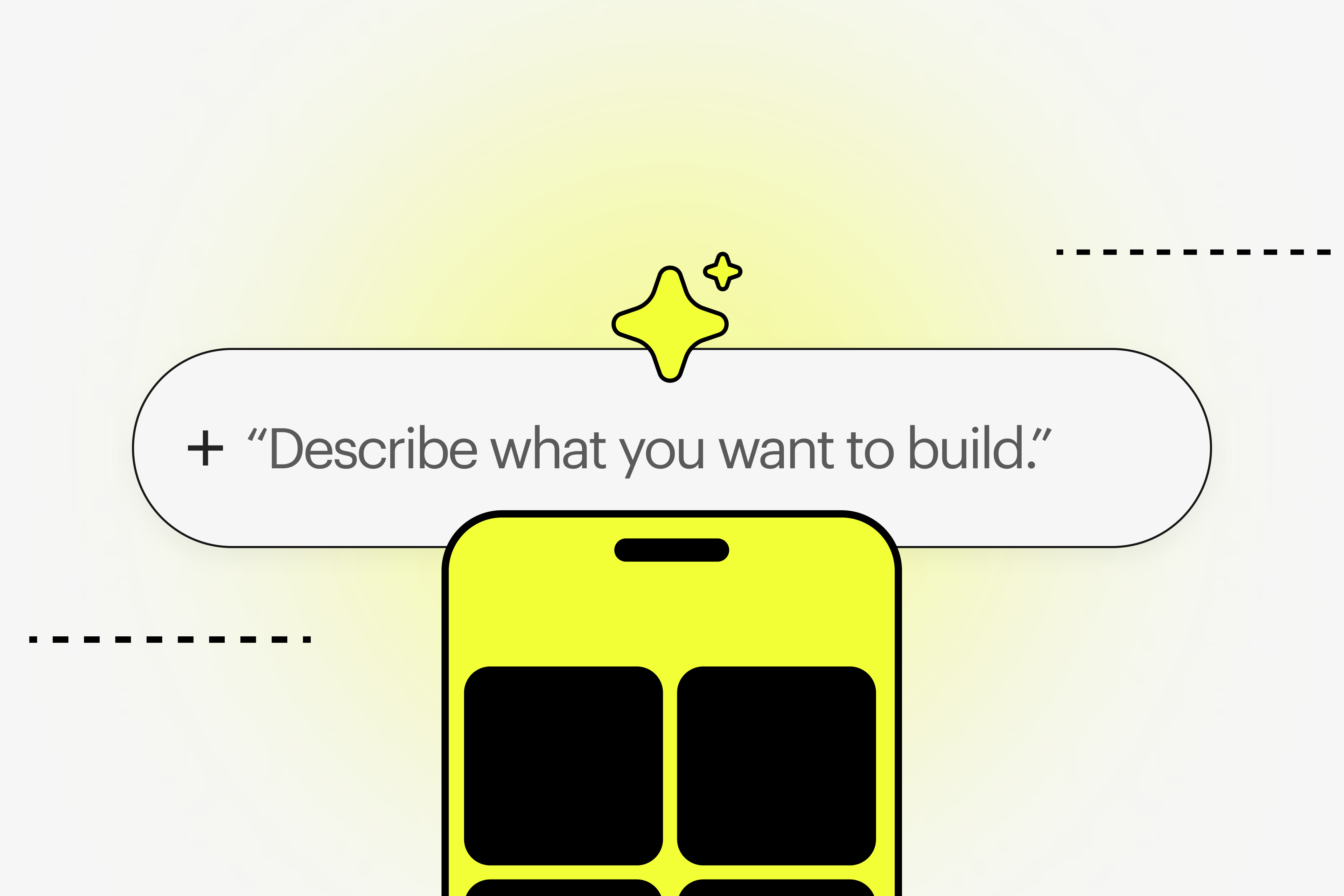AI-generated web apps are having a “look how cool I am!” moment in history.
They’re fast, cheap, exciting, and very cool.
Web platforms that used to promise full control for builders now have a homepage that says, “Describe what you want to build” and a single input field.
For solo creators, startups, and small businesses, AI app building tools can bring huge wins. Some can transform entirely with a few weekend vibe coding sessions. We’ll see many new businesses created from these tools. Sam Altman and the folks at OpenAI are looking for the first one-person billion-dollar company, enabled by AI.
But we’re here to talk about enterprise companies—the big ones with a long list of very specific requirements. The ones that have a specific way they want things done.
The promises of “Build anything” input prompts start to bend when you get to the enterprise level.
Enterprise web applications demand key requirements that AI can’t yet deliver—security promises, maintainability, and human judgment.
Security promises
Tell any enterprise company that you can’t guarantee the security of the code, and the conversation will be over quickly. This is a requirement and deal-breaker for every enterprise company out there.
A simple ChatGPT ask reported that 30-50% of all AI generated code is unsafe, and also found these shocking stats:
- ~45% of AI-generated code samples contained known vulnerabilities across 80 tasks and 100+ LLMs
- • User studies indicate developers with AI assistants tend to write less secure code versus those without (higher vulnerability rates across 4/5 tasks).
The reality is AI generated code is not safe yet. And it looks like it’s a long way from true reliability.
For example, a common issue is AI adding API keys, that are highly sensitive and should not be visible to end users, directly into the user-facing code. We’ve seen this happen in our own vibe-coding experimentation at Finsweet.
“True reliability” is what every enterprise company is aiming for. For a solo builder, these may be small risks. For an enterprise, it’s unacceptable.
Maintainability
Can you continue evolving, growing, and debugging an app you didn’t build yourself?
For very simple, isolated apps, maybe yes.
For large applications that rely on integrations, custom workflows, and specific requirements, probably not.
Without intimate knowledge of your application, how do you know if you’re building a spaghetti codebase or a strong scalable system?
- • Will you (the human, who is not the author) know how to ask for updates to ensure the codebase stays organized?
- • Will AI know when to ask you to make key decisions about the codebase, database, and infrastructure?
- • Will your application turn into a web of patches, add-ons, and isolated functionalities? Or will it be a unified system of thoughtful execution?
For serious application development, all of these questions need to be resolved. AI is not there yet.
This puts a huge red flag alert on project scalability, which is a must for big companies. Building unmaintainable projects with technical debt is more dangerous and expensive as the company gets larger.
Human judgement
AI fails because it doesn’t know how humans strategize in unique situations. It doesn’t know when or how to ask us the right questions.
Every great software project is a conversation. Clients share needs, teams ask questions, priorities shift, ideas are born, and edge cases appear everywhere throughout the project. Human back-and-forth is what builds the shared context that produces great software.
AI tools start with a single prompt. And even with a complete scope writeup for your first prompt, big web applications always require ongoing context and human judgement. Ongoing conversation, strategy, and the human ability to know when to ask the right questions.
These are human judgement questions we always ask our clients during the development process. The answers help us strategize and create a plan that works for the client.
- • If you have a tech team, are they familiar with specific frameworks or languages? Do they have tech stack preferences?
- • Have you tried building an app already? What worked well and what didn’t work well?
- • Are there other pain points in your business that can be alleviated within this web app?
- • Why now? What changed in your business that pushed this project to the top of the list?
- • If we had to launch a simpler version in 4 weeks, what would absolutely need to be in it?
Software is hard. If you give AI a detailed scope for your app, it will make it work. But “make it work” isn’t good enough. Our team takes a step back and looks at the bigger picture, through the lens of our experience building web apps, and creates a human strategy designed for the humans asking us to build it. AI doesn’t understand that yet.
At Finsweet, we help companies leverage AI, without losing the craftsmanship and control that makes great software scalable. Finsweet.com.


























